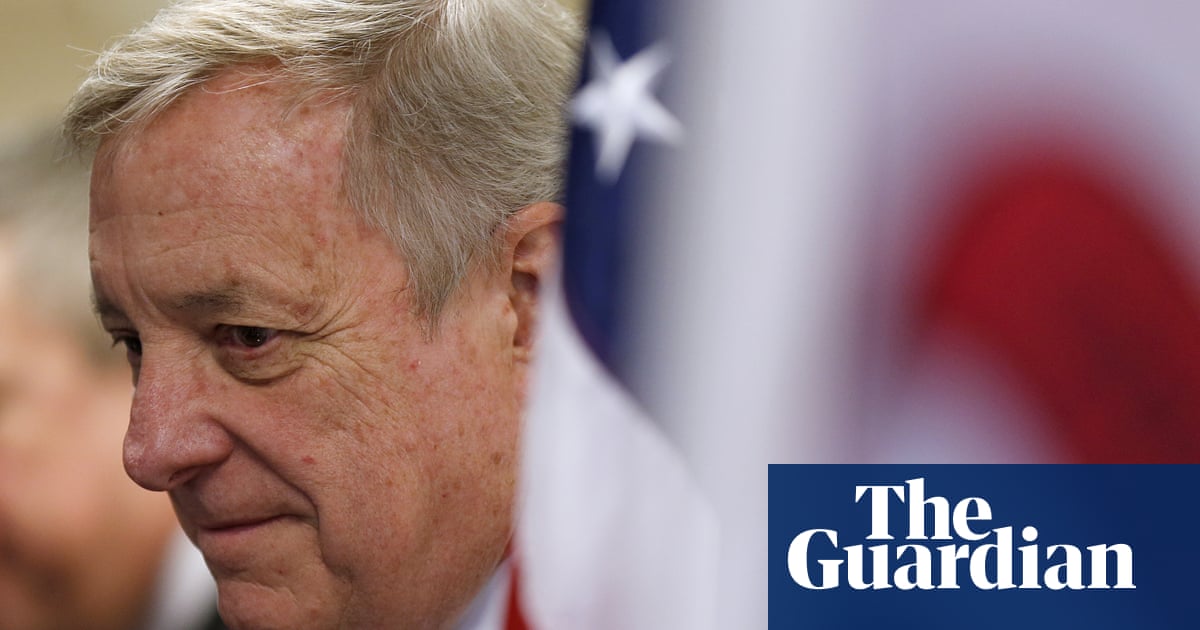Dick Durbin, the second-highest rankingDemocratin theUS Senate, announced he will not seek re-election in 2026, bringing an end to a Senate career that spans nearly three decades.
The 80-year-oldIllinoissenator, who has served since 1996, posted on social media that he plans to leave office in 2027 when his term expires – meaning there will be an open primary for his replacement in the midterms.
“I truly love being a United States Senator, but in my heart, I know it’s time to pass the torch,” Durbin said in a video statement on X.
As Senate Democratic whip and ranking member on the judiciary committee, Durbin’s departure represents a significant loss of clout for Illinois. His exit will vacate one of the most powerful positions in Washington and end a career marked by his influence over national policy and directing federal funding to his home state.
The veteran lawmaker cited his age as a primary factor in the decision, noting that he would be 88 by the end of a potential sixth term. The news of his retirement was first reported by WBEZ and the New York Times.
“It’s time,” Durbin told WBEZ. “You observe your colleagues and watch what happens. For some of them, there’s this miraculous ageing process where they never seem to get too old.”
It is not a total surprise, as speculation of his retirement began to trend in Washington earlier this month after his federal financial report showed he raised justnorth of $42,000this first quarter of this year, a paltry sum for a politician interested in holding his position in the midterms.
Still, Durbin’s announcement is expected to trigger intense competition among IllinoisDemocratseager to take his seat. The potential list of successors includes the former Chicago mayor Rahm Emanuel, Illinois lieutenant governor Juliana Stratton and Representative Raja Krishnamoorthi, who has pooled a $19m campaign fund. Representatives Lauren Underwood and Robin Kelly are also considered possible candidates.
His departure could provide an opening for Republicans to contest the seat, though Illinois has trended Democratic in recent elections. The last Republican senator from Illinois was Mark Kirk, who lost his re-election bid to Tammy Duckworth in 2016.
